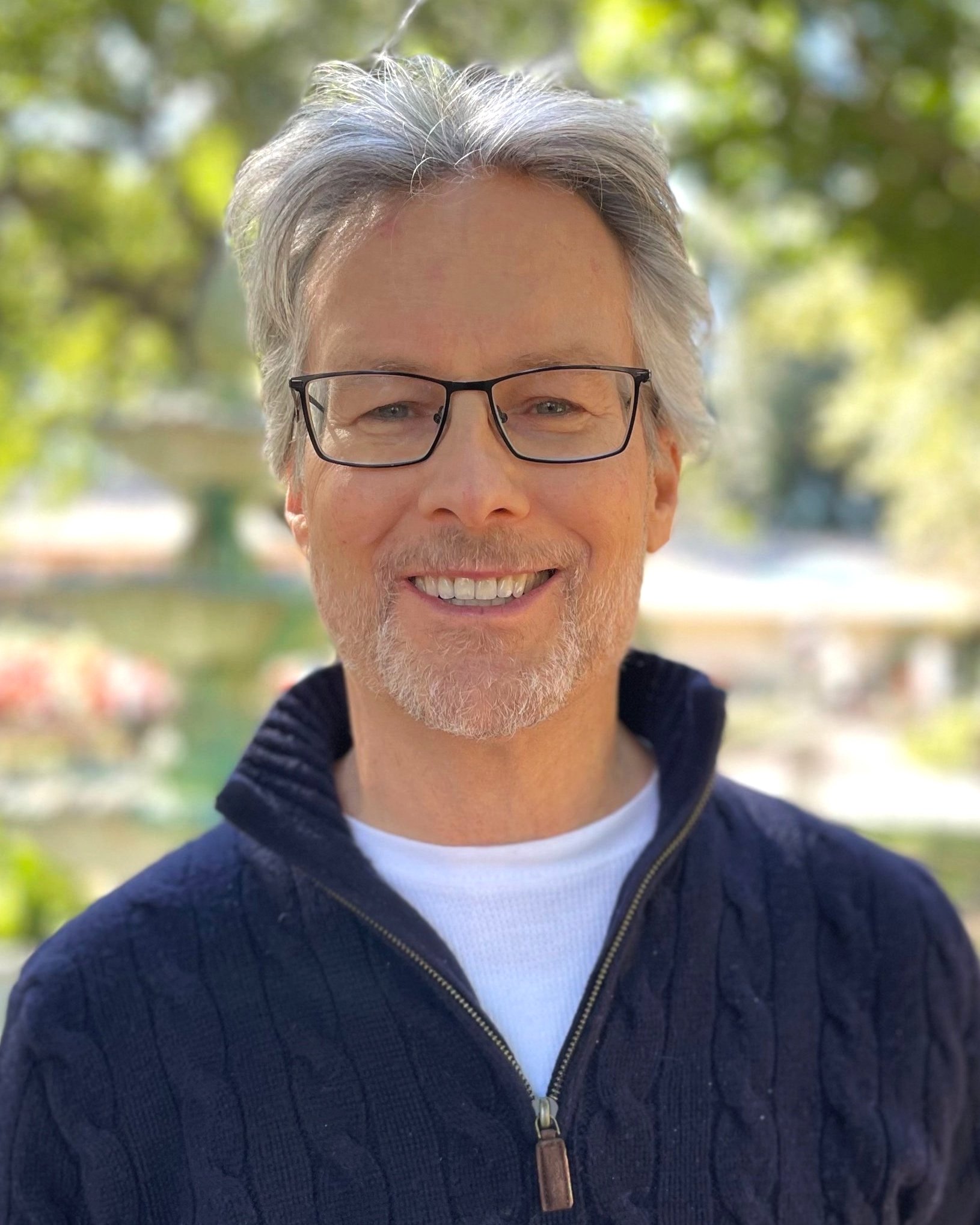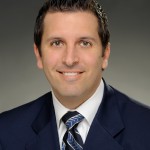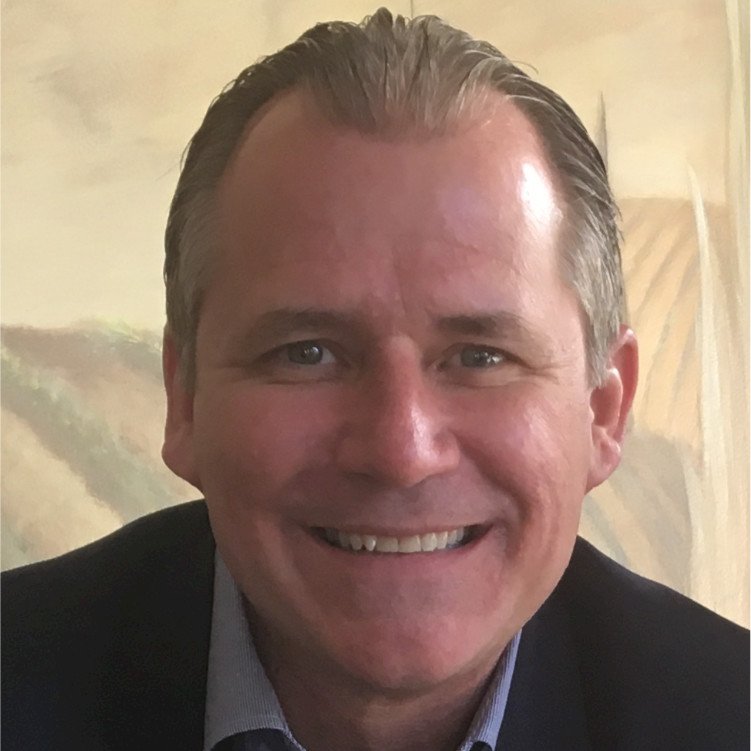
OUR MISSION
The Prostate Cancer Research Institute (PCRI), a 501(c)(3) not-for-profit organization that is dedicated to helping you research your treatment options. We understand that you have many questions, and we can help you find the answers that are specific to your case. All of our resources are designed by a multidisciplinary team of advocates and expert physicians, for you. We believe that by educating yourself about the disease, you will have more productive interactions with your medical professionals and receive better individualized care. Feel free to explore our website or contact us at help@pcri.org with any question that you have. Our Federal Tax ID # is 95-4617875 and qualifies for maximum charitable gift deductions by individual donors.
Empowering patients with knowledge of the most effective known treatment options that limit the risks of complications and side effects.
Encouraging physicians to stay medically current and help them access and actively engage with top experts in the field.
Providing information based upon peer-reviewed medical research, literature, and reputable studies that will enable the patient to knowledgeably participate with his health care team in developing the best individual treatment strategy.
Supporting research that can most immediately improve patient outcomes.
Advocating treatment options based on the biologic manifestations of the cancer, the patient’s overall health, and the outcomes desired by the patient.
Educating through conferences, seminars, Helpline, website, newsletters, brochures and other publications, the latest tools and updates that may immediately benefit patients and physicians.
Involving patient families and loved ones in the treatment plans.
Sharing information and opportunities with other prostate cancer organizations and support groups, to coordinate efforts and to support fellow organization’s progress in fighting the disease and its effects upon men and their families.
Promote Prostate Cancer Awareness and annual testing of all men over 40.

OUR TEAM

OUR HELPLINE TEAM
JONATHAN LEVY
was diagnosed in 2009 with intermediate risk prostate cancer, at age 63. He underwent two years of androgen deprivation therapy (hormonal therapy), and radiation treatment. After a few years off treatment, he developed metastatic recurrence in 2014, but continues to do very well with his current regimen. He was surprised to find he had much fewer side effects when restarting androgen deprivation in 2014, than he did in 2009. From the beginning, Jonathan has taken a proactive position regarding his own cancer treatment, researching and evaluating his options in light of the best currently available tests and procedures. Jonathan is a retired Film Editor, and works from his home in Southern California.
SILVIA COOPER
is the daughter of a prostate cancer patient. She has been advocating for her father and managing his care since his initial prostate cancer diagnosis in 2000. Through her work on Helpline, Silvia has been helping others on their prostate cancer journey since 2011. Her background in administration enabled her to also help PCRI with administrative needs. Due to her mother's death from cancer and her experience with her father's prostate cancer, she is passionate about helping others through this difficult time in their lives.
JOHN SHEARRON
has been a passionate, obstinate and vocal advocate for men with prostate cancer since he himself was diagnosed at age 45 in 2001. He had an unconventional journey, to say the least. Choosing to apply the best available research at the time, he and his doctor decided he would use combinations of conventional drugs that had shown anti-cancer properties to treat his cancer. No radiation or surgery was performed at this time. Prior to starting on this regimen, which would last 6 years, he sent a letter to his doctor absolving him from any responsibility for the outcome. In year 7, the protocol stopped working. Focal cryoblation was performed. One year later mass biopsies showed the prostate to be clear and free of any cancer. He continues to monitor his cancer and works hard to stay healthy. He currently runs the Mets Mavericks group in the Chicago area, which specializes in helping men with metastatic cancer. Learn more about John.

BOARD OF DIRECTORS

MEDICAL ADVISORY BOARD

OUR STORY
In 1996, PCRI was founded by renowned doctors Stephen Strum, MD, and Mark Scholz, MD—both prostate cancer specialists—and Harry Pinchot—a patient—who recognized a need for trustworthy information about prostate cancer. They noticed that the patient community did not have access to information about new treatments, and they were predominantly receiving treatment that was out-of-date, and often times unnecessarily toxic.
While Dr. Strum and Dr. Scholz pored over medical journals and condensed the research into understandable patient friendly language, Pinchot began PCRI’s Helpline and responded to calls from worried patients and caregivers. He empowered them to find and understand their options and the information they needed to get the right treatment.
We believe that the best treatment happens when an educated patient works with their doctor to sort through the severity of the disease, the treatment options that are available, and all of the side effects. Dealing with a new diagnosis is complex because all of the parties involved have different interests. By becoming educated about the disease, the patient avoids making decisions that they regret, maximizing quality of life, and survival.
Today, PCRI has evolved to meet new problems that the modern patient faces, but has maintained the same formula that our founders had. We work with leading doctors who present the latest advancements in understandable language at our conferences, on our newsletter, and our website.
We believe that patients need connection with others who understand the problems that they encounter to become empowered and educated. We foster this connection through our helpline and our conferences. The key to a synergistic relationship between the patient and the doctor is communication, education, empowerment, support and ultimately, hope.

TESTIMONIALS
Here you'll see experiences of prostate cancer patients, caregivers, and support group leaders.
Every journey is different, but PCRI has the honor of being there for each one.
Phil's Story
In February of 1989, my FAA designated Aviation Medical Examiner (AME) first detected an abnormality on my prostate during a mandatory six-month flight physical required for all certificated Air Transport Pilots age 40 and over. I always believed in preventative maintenance for both the aircraft I flew and my own body. So when my AME suggested I might be wise to undergo a voluntary examination of my prostate, I thought it prudent to participate.
The Centers for Disease Control and Prevention (CDC) were concerned there might be possible adverse effects from undetected prostate cancer in aircraft pilots, ships masters, train engineers, eighteen-wheeler drivers carrying freight across our highways; hence, an urgent request to physicians certificated to perform voluntary digital-rectal examinations on those patients who agreed to participate. Thus I provided an early warning that something was amiss in my prostate. My AME performed a “finger-wave” and felt a large swelling on my prostate, leading me to seek and receive early treatment
The first Prostate Cancer Research Institute meeting I attended was probably the first meeting of its kind, held in Long Beach, California. I may have missed one or two of the early annual meetings but I attended nearly all, which is no small feat considering I have been fortunate enough to live in Hawaii for the past 51 years.
The astonishing rate of research and production of new drugs and methods in the diagnoses and treatments of prostate cancer during the past thirty years has been a blessing to me and thousands of other men experiencing prostate cancer. I am among those lucky men whose diagnosis and treatment became available with the help of a very special and brilliant group of researchers and practitioners at PCRI. Thank you Prostate Cancer Research Institute, and especially Mark Scholz, M.D.
Phillip Buck Olsen
Capt.USAF (Ret), Aviator, Educator, and Writer
Honolulu, Hawaii
A Letter From A Faithful Caregiver
This letter is long overdue, and words cannot even express my deepest gratitude for your organization that has provided so much help to my husband and me. When my husband was newly diagnosed with prostate cancer in 2012, it left me as a caregiver, devastated. I felt hopeless and afraid, with nowhere to turn for support. I remember so distinctly my first call to your Helpline. My anxiety was through the roof, and Silvia Cooper, who is now the most selfless woman I know, assisted me by listening and asking me some tough questions, so that she could provide the best possible resources to us.
That April of 2012, Silvia changed my life. I had nowhere to turn for support. I just wanted someone to really listen, I had so many questions. Would my husband live? If so, how long will he live? These were just some of the anxiety issues I was facing. Mrs. Cooper was there for me every step of the way. Thank you for all the valuable resources! Based upon those resources, we were able to make a wise, informed decision and choose the best treatment options for my husband.
Further, PCRI Helpline educated us as to how to use correct terminology when dealing with the urologists, oncologists, and primary physician. Being able to communicate effectively with the team of doctors made all the difference in the world. We felt like we were heard. In my humble opinion as a caregiver, I don’t think we would have received the quality level of care if we had not been educated about how treatment for this disease can have major impacts on one’s health and well-being.
All I wanted at the time was for someone to listen and care about how I was feeling as a caregiver. During this difficult time, my husband had been dealing with his own issues as it relates to this disease. But I often felt like the pressure was on me. I learned to take one day at a time and take care of myself as well. I needed to remain sane and strong through the ups and downs.
I also want to thank Bob Each for cheering my husband up. My husband’s PSA is rising again, 4 years after having a prostatectomy. To see the smile on my husband’s face after he and Bob talked was a whirl of positive energy. Bob’s spirit is positively contagious, as his sense of humor about this disease is breathtaking and refreshing. My husband now calls Bob his ‘go-to man’ for any questions he may have regarding recurrence. Thank you, Bob. My husband said: “I will always remember that guy because his sense of humor about this disease helped me look at things in a different way.” So thank you, Bob, for reducing my husband's anxiety when his PSA was starting to rise again. And of course, you reduced my level of anxiety too, which was probably higher than his.
The work that PCRI does is over and beyond our greatest expectations. As a caregiver, I feel much more confident communicating with my husband’s team of doctors and feel like I can stay on top of the current educational resources, so that my husband can receive the best quality care relating to his disease. Thank you for your time. Thank you for your continued dedication, working tirelessly to provide support to all of us caregivers and patients who are living with this disease and may feel as though there is no light at the end of the tunnel.
In closing, please know that the work that you all do at the Prostate Cancer Research Institute is not in vain, and you are making a difference in the lives of many people living with this disease.
Peter's Story
How can I say what PCRI has meant to me without sounding like a shill? I guess I could say; "It saved my life". But that would be rather dramatic and perhaps over the top. But PCRI and the doctors and professionals I have encountered and learned from, as well as the many patients I have met at the annual conferences with whom I continue to share experience and camaraderie with, have empowered and inspired me to advocate for other men dealing with prostate cancer. PCRI has given me the tools and "know how" to manage my own disease and guide my journey. Rather than feeling like prostate cancer has stripped me of my manhood and left me to the mercy of doctors, PCRI has encouraged me to join a powerful team of physicians, researchers, and patients who are constantly expanding the treatment and management options before us. PCRI is empowerment!
Peter R. Kafka
Maui, Hawaii
A Loving Wife
In 2015, my husband was diagnosed with prostate cancer that had metastasized into the bone. After nine rounds of standard chemotherapy, his PSA began to rise and things were looking bleak. We then heard about the PCRI, and we attended our first convention where we met Dr. Mark Scholz. He immediately placed my husband on "advanced" treatments which has put the cancer in remission with undetectable PSA. The latest bone scan has shown amazing recovery and healing. Thanks to the PCRI, I still have my loving husband.
The Walnut Gang — Orange County
The Walnut Gang — Orange County Support Group
PCRI - What a great staff of people. Hi I am Larry Gerber with the Walnut Gang (a Prostate Support Group in Fountain Valley, California). This group is dedicated to helping newly diagnosed men, supporting them with up to date information, and supporting them after their procedures.
PCRI is one of OUR most important contributor of information ( w/ a booklet - Prostate Cancer Staging Guide and other material). They also provide a staff of very professional people that can speak to all phases of treating Prostate Cancer. They also have a website - pcri.org - that contains links, videos, and other up to date information on or about Prostate Cancer.
Twice a year PCRI conducts conferences ( Midyear - 1 day in March and and the 3 day in usually in Sept.) These conferences bring together great speakers and up to date information in the world of Treatment of newly diagnosed and reoccurring metastatic Prostate Cancer. There is time to question the speaker personally and to see vendors that support the world of Prostate Cancer.
As a Support Group - PCRI - play a large part of our meetings with topics that come up about Prostate Cancer. Topic about subjects that are contained in the Prostate Cancer Staging Guide. the Hows and Where for the proper treatment that YOU decide on, Questions to ask doctors , all written in layman terms. On the website you have contact numbers that can handle your questions.
-Larry Gerber
“Rolling 12s. I’m rolling 12s” It was a phrase I often used to describe my lifelong good health. After sixty-eight years, I assumed I would always be healthy and free from major medical challenges. I was mistaken.
In 2017, my Primary Care Physician (PCP) informed me that my PSA had risen from 3.5 to 4.5 and advised me to begin annual PSA testing. When I moved to Tennessee in 2021, my next PCP stated that my PSA level had increased to 6. Despite a smooth Digital Rectal Exam (DRE), I was told to keep annually monitoring my PSA. Upon returning to Chicago in 2023, my new PCP recommended that I see a urologist for a prostate biopsy, as my PSA had risen to the mid-6s. I saw a urologist, who recommended I undergo a prostate biopsy. I did so in later November.
On December 7, 2023, my urologist called with my biopsy results: “You have cancer, and we need to discuss surgery or radiation treatment.” I was stunned, as my perfect health had ended. I knew nothing about these treatment options. Still in shock, I immediately began researching and taking responsibility for my health, something I had taken for granted my entire life. My best friend, Keith Day, had also been recently diagnosed with prostate cancer. So, after telling my wife, Alice, I phoned Keith. During our 90-minute conversation, we decided to educate ourselves thoroughly so that — if at all possible — we could avoid surgery, which had been recommended by both our (first) urologists. Keith asked about my Gleason score, which I didn’t know at the time. When I received my Gleason report, I had one 4+3 and two 3+4 tumors, with nine benign. Keith had no 4+3 tumors. We needed to better understand what PCa risks we faced.
I can’t possible overstate how important it was to have a “buddy system” at this time in my life.
Keith and I both spent December and January learning about prostate cancer and what a complete PCa diagnosis might entail. We discovered key differences in our biopsies; I had a transrectal 12-core biopsy, and Keith had a transperineal 10-core biopsy. We learned that TR was considerably riskier for the patient. Now, we really knew we had to full educate ourselves to ensure the most accurate diagnosis for us both.
Our extensive internet research led us to the pcri.org website, where we watched Dr. Scholz and Alex Scholz’s videos on a daily basis. Inspired by Dr. Scholz and his interviewer, Alex, we decided to take control of our healthcare as our own case managers. They were our champions and encouragers.
Armed with information from PCRI, I sought a second urological opinion, advocating for active surveillance instead of immediate surgery or radiation. This urologist also recommended surgery or radiation. Despite skepticism from this second urologist, after watching key PCRI videos, I ordered a Decipher Test. The .21 result contradicted my initial Gleason score. By this time, I knew enough to thoroughly discount the advice of the second urologist.
I February, we saw a crucial video featuring Dr. Scholz and Alex honoring one Howard Wolinsky for his contributions to Active Surveillance. Howard, also from Chicago, graciously agreed to meet us. During our 2.5-hour lunch, he recommended a second pathology read by Dr. Ming Zhou of Tufts Medical. Dr. Zhou promptly responded right there doing our lunch, and I sent my slides to him. His results showed a significant downgrade in my cancer diagnosis: 3+3, 3+3, and 3+4 for my three tumors. Zhou's downgrade in my PCa case aligned with my “.21” Decipher Test result. This disparity in test results highlighted, for Keith and me, the complexity of accurately diagnosing prostate cancer and made us all the more determined to obtain the most objective diagnosis possible.
Confident we could manage our health proactively, I hired a nutritional doctor with extensive experience in prostate cancer. He recommended specific supplements and supported my vegetarian diet, high-impact training, weight loss, and lifestyle changes. I reduced my weight from 234 pounds to 187 and aimed for 174, inspired by the dietary advice of Dr. John McDougall and Dr. Stacey Loeb.
I met with a third urologist, more open to active surveillance, who recommended an MRI. Incredibly, this MRI showed no detectable cancer, a stunning and relieving result. A second PSA followed, showing a drop from 6.5 to 5.2.
In six months, I had gone from “you need surgery or radiation” from two urologists to “you have no perceptible cancer” from my MRI. ASPI webinars had also become an inspiration during this time. YES, we really can do Active Surveillance as long as we remain actively vigilant monitoring our PCa status.
Reflecting on my journey, I see my prostate cancer diagnosis as a four-pronged blessing:
Spiritual Growth: My diagnosis made me rely more on God, believing PCa to be a blessing in disguise.
Empathy: PCa has increased my empathy for those with more serious medical conditions, shifting my perspective to cherishing and preserving health.
Lifestyle Changes: PCa prompted me to overhaul my diet, exercise, weight loss, and overall lifestyle, leading to significant health improvements.
Purpose: It gave me a purpose to help other men navigate their prostate cancer diagnosis and treatment options.
Keith and I are committed to paying it forward, helping men make informed decisions about their own prostate cancer journeys, as well as encouraging them to take full control as THE Case Manager for their PCa needs. This experience, supported by resources like my wife Alice, PCRI.org, ASPI, Howard Wolinsky, my physical trainer, Tommy, my nutritionist, and ASPI, has made all the difference for me.
Thank you for reading my story, and may God bless you on your PCa journey.
-Charles Brown
Jim Marshall - jimjimjimjim.com
PCRI is invaluable to thousands of men with prostate cancer and the people who care for them. There is no better source for prostate cancer information in the world. Their YouTube videos are empowering for men and those who are on this journey with them. The prostate cancer patient conferences in Los Angeles bring together the best medical people in the world to interact with patients and carers. I cannot recommend them highly enough.
-Jim Marshall
Joel Nowak — Cancerabcs.org
Joel Nowak — Founder of Cancer ABcs
I am both an 18 year prostate cancer thriver and an advocate. I have had the great pleasure of working hand-in-hand with PCRI for over 10 years.
I am a regular attender of their annual LA conference and have consistently found that their programs and conference agenda have been excellent. They are patient oriented and teach men and their caregivers about prostate cancer and how to make better medical decisions.
They empower men and their caregivers with education, humor and an opportunity to meet and learn from 100's of other prostate cancer thrivers.
Unlike many other prostate cancer non-profits they "play well in the sand box" with other non-profits. Clearly, their primary orientation is towards supporting the men with prostate cancer. At the last LA conference I mentioned that my non-profit Cancer ABCs (www.CancerABCs.org) was going to be running a screening program in Harlem and that we were struggling to raise the capital needed for the program. Later that day their Executive Director handed me an envelope with a very generous donation to support our program.
They are tops, care first about patients and are an important and well respected resource for men who have been diagnosed with prostate cancer and their caregivers.
- Joel
Prostate forum of Orange County — Support Group
I handle outreach and relations with other nonprofit groups for the Prostate Forum of Orange County, California. I've worked with Alex and her staff many times in the last year. We depend on PCRI for accurate and timely research data and help with building our non-profit prostate cancer support group. Alex and her staff are prompt, friendly and hard working. I look forward to working with them again, soon.
-Neal
Active Surveillance Patients International
Active Surveillance Patients International (ASPI) is deeply indebted to PCRI for its very existence. In the 18 yrs since I have been on AS, I have attended many of their conferences. Dr. Mark Scholz and PCRI have moved the dial on AS more than any organization. ASPI has helped hundreds of men navigate AS, but that would not be possible were it not for PCRI.
-Mark Lichty (Chairman ASPI)
Verne Varona, Author: “Nature’s Cancer-Fighting Foods"
"I have an extraordinary twenty year relationship with PCRI—as I've been a nutritional consultant and author that counsels men who are seeking alternative therapies to supplement conventional treatments. I respect and admire the PCRI foundation because its heart is in empowering men by sponsoring programs that educate and motivate. Their annual conferences reveal a dynamic array of cutting edge treatment options that feature top physicians in the country. As an occasional participant of these conferences, I've spoken to thousands of men who found inspiration, positive guidance and supportive networking from PCRI's voice and activities.”
-Verne Varona
John Shearron, Leader of advanced prostate cancer support group “Mets Mavericks” in Chicago, Illinois
I've feel very fortunate to have found PCRI.org They've been a great source of information and help. I attended a number of their conferences and in doing so have been able to meet other men in my same situation. It's been invaluable to me to be able to talk to other men like myself. PCRI's Help Line is also another godsend. In addition they have a YouTube channel with quite a few informational videos that have been immensely helpful. All I can say is that if it wasn't for PCRi, I wouldn't have had the access to the latest prostate cancer knowledge and the peace of mind that comes from not being left in the dark regarding my disease.
INFORMED PROSTATE CANCER SUPPORT GROUP (IPCSG) — SAN DIEGO COUNTY
Our support group officially became a non-profit organization in 2004 but it really began in a kitchen in a San Diego suburb in 1990. Lyle LaRosh (deceased) was the initial president and began formalizing meetings. He made our group aware of PCRI and the benefits of their programs. In addition to many members attending and learning from the PCRI in-person meetings, we have convinced several local doctors to attend as well.
Many continued to take advantage of the live-streaming presentations during Covid-19.
We have many recognized doctors speak as well as having members speak as well as meet with others about their personal experiences. All make good use of information presented by PCRI.
Eugene K. Van Vleet, Director
Bob Alderman — Prostate Cancer Patient Advocate
I am a stage four terminal bone cancer patient. I’ve had prostate cancer for 16 years. I have an amazing oncologist, Dr Sandy Liu at UCLA. My cancer got very aggressive. So did we. We hit it pretty hard, and after radiation, and chemo I had a radiation drip — Zofigo from Bayer. It was a six month treatment, and during that time I was in contact with Bayer. I pitched a lifestyle/wellness show, and they decided to help. They work through PCRI. I was put in contact with Alex. I wasn't expecting what I got. I got young progressive thinking people, with the same passion I have to help patients get through this horrible time. It’s hard for cancer patients to talk to “civilians”, but the whole PCRI crew is so in tune with what the disease is, it’s like hanging out with people you’ve know a very long time. I am very thankful for that. As far as doing business with them, they are way above board professionally. I am looking foreword to many more years working with Alex, and crew.
KC from Saratoga, California (On our John Shearron Patient Interview Video)
“Thank you for this video. I love the positivity and light at the end of the tunnel talk while not shying away on what’s ahead. I’m 2 months into ADT, started RT, and waiting for the 18-24 month end. I too started exercise, weight training per Dr. Scholz PCRI video advice and am pumped (sorry for the pun) to continue. I also had the pleasure of reaching out to PCRI and happened to get John on the other end of the phone. It’s gratifying to see him in the flesh tell his story and he’s been just great on the phone. He un tangled confusion, supplied info to replace doubt, and was a great resource to help me advocate for myself with my health providers. Stay healthy out there.
If you are like I was at the beginning thinking, “Nah I don’t need to talk to anyone” think again. Do yourself a favor and just share what you are feeling with a PCRI advocate.”

RESEARCH
PCRI has been involved in major milestones in prostate cancer therapy, milestones that have a direct effect on the quality as well as the length of life for men with prostate cancer. Areas of involvement include:
BONE INTEGRITY AFFECTS THE NATURAL HISTORY OF PROSTATE CANCER
While the initial observation of bone loss secondary to ADT was not made by PCRI, recognition of the severity of this finding and the potential effect on the course of disease was emphasized by Dr. Strum in the 1997 Seattle Conference on prostate cancer, and again at the 1999 Phoenix Conference on prostate cancer. During those meetings, other physicians heard this presentation and began writing and discussing the importance of bone integrity in PC.
In addition, Drs. Strum and Scholz championed the use of pamidronate (Aredia) in the setting of bone metastases from PC. They were the first doctors to routinely use this medication in such circumstances although no Medicare reimbursement was forthcoming for years. Medicare now approves the use of Aredia in the setting of bone metastases in PC thanks to the efforts of these co-founders of PCRI. PCRI Insights dedicated almost an entire issue to bone integrity in January 1999 (Vol 2, no. 1). The following Insights issue (Vol 2, no. 2) pointed out that the baseline level of Pyrilinks-D (Dpd), a simple urine test, is likely to be a clue to systemic bone metastases if above-normal values were noted prior to the institution of ADT. The importance of bone integrity is becoming more and more obvious with the increasing number of publications on this subject. Most recently, Novartis had its new drug, Zometa, approved for problems with bone resorption.
ANDROGEN DEPRIVATION SYNDROME (ADS)
During the years of observation of hundreds of patients on ADT (androgen deprivation therapy), it became apparent that a spectrum of complaints was being heard from patients that related to lack of male hormone. The spectrum ranged from virtually no symptoms due to ADT to a complete intolerance from the lowering of testosterone. Symptoms included the obvious loss of libido but also muscle and bone loss, anemia, hot flashes, emotional lability with easy crying, changes in hair growth, brittle nails, memory and calculating difficulties, weight gain, frequent aggravation of hypertension, diabetes, nipple hypersensitivity, and breast enlargement. These findings were described for the first time as the Androgen Deprivation Syndrome or ADS at the American Society of Clinical Oncology (ASCO) in Los Angeles in 1998. ADS was the topic presented in PCRI Insights in the January 1999 issue. In that issue, Tables 3a & 3b detailed recommendations for the treatment or prevention of symptoms of acute ADS and chronic ADS. The recognition of ADS as a clinical entity and the need for correction of any of these problems if they become significant remains an area needing more attention and education. If we are to be successful in the use of ADT, then we need to know the downsides of such treatment and institute corrective measures. This is how optimal patient outcome is achieved: accentuate the positive, minimize the negative.
ANEMIA ASSOCIATED WITH ANDROGEN DEPRIVATION (AAAD)
AAAD was described for the first time in abstract form in 1994 by Dr. Strum and was published in full in 1997 in the British Journal of Urology by Drs. Strum, Scholz and others. It is the first description of a new type of anemia commonly found in men undergoing androgen deprivation therapy (ADT). This is related to the known importance of androgens in the development of red blood cell formation and accounts for the differences in the blood count (hemoglobin and hematocrit) seen between men and women. In men with significant AAAD, symptoms such as severe lethargy and weakness, shortness of breath, and development of angina or aggravation of angina may occur. A fall in hematocrit of at least 10% is seen in 88% of men on ADT2 (Two drug androgen deprivation involving an LHRH-agonist and an anti-androgen). This supports the contention that two agents have a more profound effect on lowering androgen levels than one agent. A fall in hematocrit of (25% was seen in 11.5% of all men with 12.8% having severe symptoms of angina, shortness of breath or severe weakness.)
PROCRIT (ERYTHROPOIETIN) CORRECTS THE ANEMIA OF ANDROGEN DEPRIVATION
It is one thing to describe a new anemia and its clinical significance but another level of medicine is needed to define its resolution with a new therapy. AAAD is extremely sensitive to the use of human recombinant erythropoietin (brand names Procrit, Epogen). We presented this at the AUA meeting in 1997 and received the best poster of the day award. We have not had time to prepare the definitive paper on this but our work has already impacted many patients since many physicians are now using Procrit to correct AAAD in patients with symptomatology. Most recently, Procrit is being advertised on television as a way to correct fatigue due to anemia of many causes.
VIAGRA (SILDENAFIL) RESTORES ERECTILE ABILITY IN MEN ON ADT
This conclusion was presented as a Letter to the Editor in the Journal of Urology in 1999. In a study of 21 patients, it was found that erectile function was dramatically restored in the majority of men using Viagra. This is another example of the resolution of one of the ADS findings by continued efforts of PCRI founders. The use of Viagra in this setting is important not only for achieving erectile function but also for preventing penile atrophy that is so common in men on long-term ADT. The Jane Fonda statement “Use it or lose it” applies to this situation as it does to the need for interval exercise of skeletal muscles to prevent muscle loss as well as ongoing use of brain activity to prevent cognitive dysfunction.
INTERMITTENT ANDROGEN DEPRIVATION (IAD)
Due to the importance of ADS and the critical role that physiologic levels of testosterone play in the health of man, a visionary approach to ADT was begun in 1990. This was styled after the approach taken by the pioneers in this field from the Cancer Control Agency of British Columbia- Bruchovsky, Gleave, Goldenberg et al. The approach used by Dr. Strum differed, in that the target PSA on ADT had to reach an undetectable value (<0.05 ng/ml) using an ultra-sensitive assay. The hypothesis here was: “A low level PSA reached on ADT would reflect a sensitive PC cell population that was most likely uniform in nature (homogeneous) and truly androgen dependent.” It makes no scientific sense to be critical of androgen deprivation therapy in men presenting with findings indicative of androgen independent PC? ADT can show tremendous efficacy in populations of androgen dependent tumors but not with androgen independent populations. This is the very nature of ADT_(androgen deprivation therapy) yet most physicians treating men with PC ignore this basic principle.
The most recent publication on the use of two-drug ADT (ADT2) was published in February 2000 in the medical journal The Oncologist and the October 2000 issue of PCRI Insights. The use of IAD3 or three-drug combination therapy (finasteride or Proscar was the third drug added) has been presented at the American Urologic Association in 2000 and at the PCRI-US TOO Conference 2000, but has not yet been submitted for full publication. The results of this approach are striking and should influence current intermittent approaches. The key concept here is to use a therapy that invokes principles of tumor sensitivity as manifested by a sensitive biomarker such as the ultra-sensitive PSA (DPC 3rd Generation Immulite or Tosoh Hypersensitive Assay). Moreover, the IAD3 data indicate that Proscar, in the setting of additional agents such as an anti-androgen (Eulexin, Casodex, Nilandron) combined with an LHRH agonist (Lupron, Zoladex), has profound activity in allowing men to discontinue conventional ADT while remaining only on Proscar. In fact, the average time off ADT in the setting of PSA recurrences following RP or RT is in excess of five years, and the average time off ADT has not yet been reached! All of this progress has emanated from the ongoing research at PCRI.
EARLY USE OF NIZORAL PROLONGS RESPONSE TIME
A landmark paper by Messing et al (Urol Oncol. 2003 Jul-Aug; 21(4):245-54) on the early use of ADT in men with lymph node disease at radical prostatectomy has been discussed at many conferences. One of the concepts underlying this appears to be that earlier use of therapies is more effective. In our study of Nizoral in men progressing after ADT, we also have found a greater response to this treatment if it is initiated before the disease becomes bulky and mutates to resistant cell clones. If Nizoral (High-Dose Ketoconazole or HDK) was begun at PSA levels of 10 or less, the average duration of response was 25 months vs. four months if the baseline PSA (bPSA) was greater than 10. We also demonstrated that the nadir PSA (the lowest PSA) has a bearing on reflecting the sensitivity of the tumor cell population that is being treated. In the Nizoral study, if the PSA nadir was <0.2, the average duration of response was 40 months. If it was 0.2 to 4.0, the average duration of response was 18 months but if it was 4.0-10.0, the response duration dropped to eight months and if > 10, to only four months. Overall, the study points out the efficacy of Nizoral when used early and the excellent response duration seen if the PSA nadir achieved is very low. This is another of the many advances to the quantity and quality of life that PCRI and its staff have made on behalf of the man with PC and his family.
IMPORTANCE OF BONE MARROW SUPPORT IN PATIENTS ON CHEMOTHERAPY FOR PC
This was discussed both at the San Diego PC Conference in 1998 and at the PCRI-US TOO Conference 2000 as well as in the December 1999 issue of PCRI Insights. If we are to achieve milestones in the treatment of advanced PC, we cannot lose men to complications such as infections secondary to bone marrow suppression that result from chemotherapy. Agents like Neupogen or Leukine, used in a preventative fashion, can protect patients from overwhelming infection that can be fatal. Unfortunately, we are seeing too many men on chemotherapy for PC who are not receiving the benefit of modern scientific advances such as the use of these agents. Bone marrow stimulants also include Procrit or Epogen (to correct the anemia secondary to chemotherapy and ADT) and Numega (to correct low platelet counts, thrombocytopenia, secondary to chemotherapy or due to radioactive isotopes like Strontium 89 [Metastron] and Samarium 153 [Quadramet]). PCRI will continue to stress the importance of such measures to physicians and patients alike. In the new millennium, we should not lose any men secondary to overwhelming infections due to marrow suppression.

FINANCIALS
PCRI is a 501(c)(3) not-for-profit education and research organization that advances awareness and monitoring of ever-expanding and evolving treatments available to improve outcomes for prostate cancer patients. The Federal Tax ID is 95-4617875 and qualifies for maximum charitable gift deductions by individual donors.
PCRI undergoes a yearly GAAP audit to ensure financial responsibility. Annual financial reports can be provided upon request. To request a copy, email: info@pcri.org
We are committed to honoring the donors who give to the PCRI. Over 85% of all donations go to funding these programs: Helpline, Insights Newsletter, Patient Conferences, & Clinical Trials.
Best In America Certification
The Prostate Cancer Research Institute is certified as “Best in America” by Independent Charities of America and a member of CancerCURE of America.
Independent Charities of America and CancerCURE of America are national associations whose purpose is to represent charities that meet the highest standards of public accountability and program effectiveness.
The Independent Charities “BEST IN AMERICA” Seal of Excellence is awarded to the members of Independent Charities of America and Local Independent Charities of America that have, upon rigorous independent review, been able to certify, document, and demonstrate on an annual basis that they meet the highest standards of public accountability, program effectiveness, and cost effectiveness. These standards include those required by the US Government for inclusion in the Combined Federal Campaign, probably the most exclusive fund drive in the world. Of the 1,000,000 charities operating in the United States today, it is estimated that fewer than 50,000, or 5%, meet or exceed these standards, and, of those, fewer than 2,000 have been awarded this Seal.








































